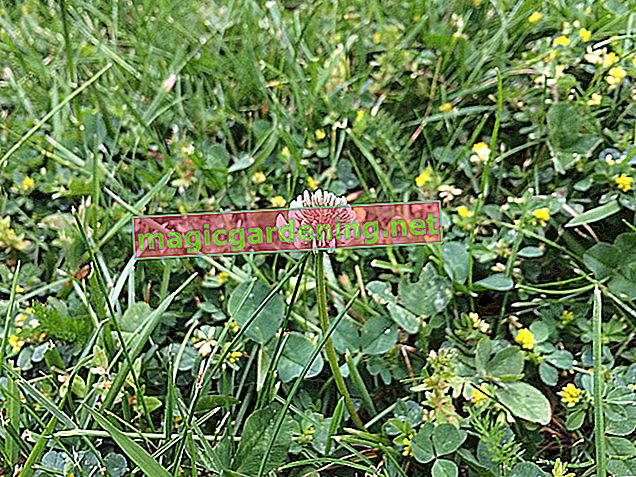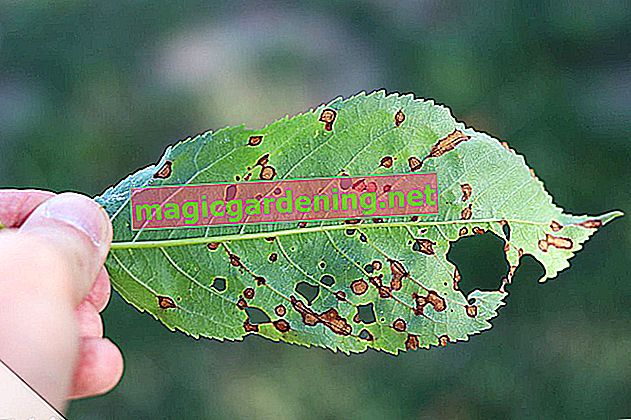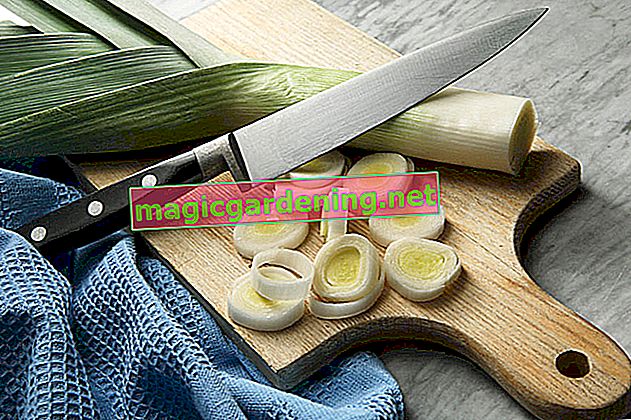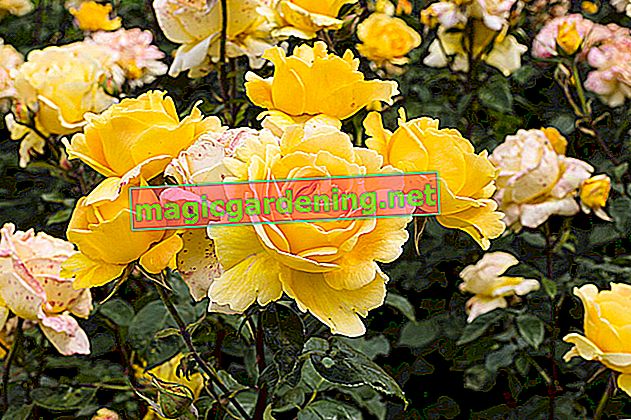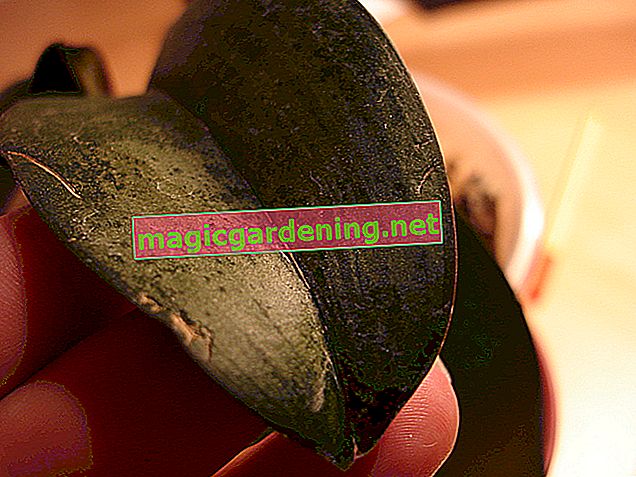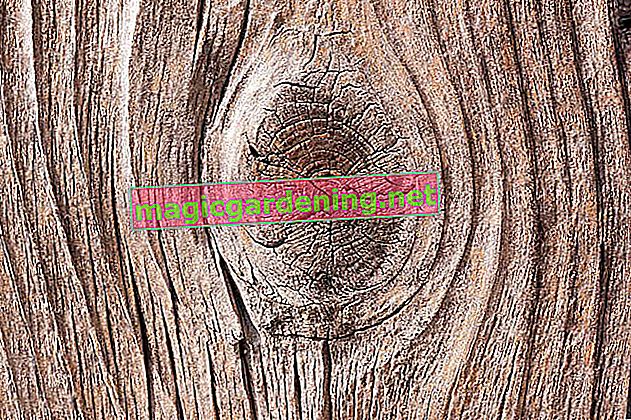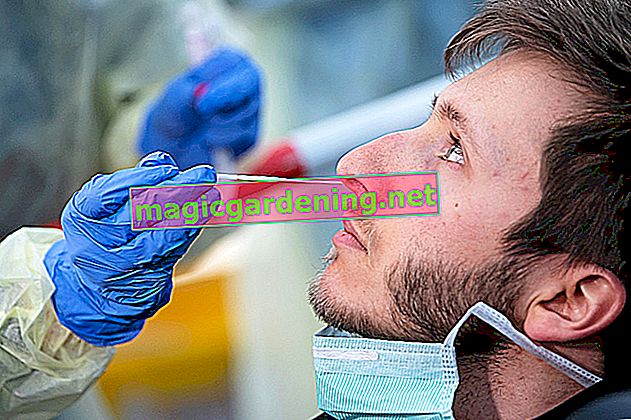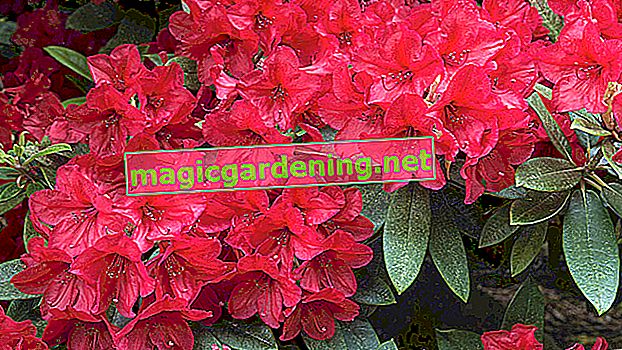
Proper fertilization plays an important role in supporting good growth of the rhododendrons. Because the roots of rhododendrons branch out widely on the surface, nutrients must be directly absorbable in the soil. To fertilize rhododendrons, it is best to use organic fertilizers or special rhododendron fertilizers.
also read
- Rhododendron fertilizers with special specifications
- Rhododendron earth is not just rhododendron earth
- First select the correct rhododendron location, then plant
But also compost, leaves and coffee grounds supply the plants with organic nutrients. In addition, the use of organic fertilizers prevents over-fertilization.
The most important thing about rhododendron fertilization
Avoid using fertilizers that are enriched with lime, such as primary rock flour. Most rhododendrons are sensitive to calcareous soils in addition to a pH value that is too high. On the other hand, like all shrubs, they appreciate mulch in loose soil.
Best fertilization time and dosage
Rhododendrons, which are ideally placed partially shaded without waterlogging in the slightly acidic soil, benefit considerably from the right fertilizer. Even if the location or soil do not offer ideal conditions for the easy-care ornamental shrubs, good fertilizer compensates for the disadvantages. April to October is the best time to eat evenly.
Maintaining ornamental trees naturally means meeting special requirements in terms of location and nutrient supply. How much fertilizer depends on the size of the plant and leaves. As a rule of thumb, the following dose per square meter applies:
- Specimens up to 60 cm - 40 to 60 grams
- Specimens from 60 to 120 cm - 90 grams
- Specimens over 120 cm - 120 to 200 grams
You work the first low-salt depot fertilizer loosely into the top soil layer under the outer third of the leaf crown. An additional addition of horn shavings (€ 6.39 at Amazon *) with 50 - 70 grams per square meter promotes deep green foliage and forms plenty of flower buds.
Good to know: Do not fertilize freshly planted rhododendrons directly. But only in the next spring, when the shrub has strong roots.
Re-fertilization after months of heavy rain
It is advisable to re-fertilize rhododendrons at the beginning of July. Especially the depleted soil after a rainy spring allows you to fertilize 30 to 50 grams per square meter. With small-leaved rhododendrons, half of the fertilizer is sufficient.
Don't forget: water the plants sufficiently after each nutrient application.
Yellow leaves alarm - high time for special fertilizers
Rhododendrons that grow, green and bloom need trace elements, magnesium, nitrogen and phosphorus. Yellow colored leaves are an alarm signal for acute nitrogen deficiency. immediate care requires that the plant grow back healthy green.
Compost and coffee grounds as organic fertilizers
Regular composting never hurts. The soil stores moisture better, remains loose and nutrient-rich.
Coffee grounds contain phosphorus, potassium and nitrogen. All three have an activating effect on the metabolism. Either you add fresh coffee grounds to the irrigation water or distribute it directly around the plant. Because fresh coffee grounds mold quickly, you have to dry them on a plate or baking sheet beforehand. Remnants of the dried fertilizer can be kept for several months in an airtight container.
Potting soil mixed with coffee grounds is ideal for potting a mini rhododendron. The slightly acidic pH value of coffee neutralizes soils with too high a pH value and calcareous irrigation water. It also drives away some pests.
Fertilize large-area rhododendrons yourself - but how?
In older, large rhododendron areas, the pH value of the soil is often above pH 5. Therefore, the first thing we recommend is a soil analysis using test sticks from a gardening specialist.
Scattering 200 grams of uncleaned sulfur flowers per square meter lowers the pH value of the soil surface. This is available in drug stores or horticultural companies. Then fertilizing with a special organic-mineral rhododendron fertilizer follows the classification
8 - 5 - 8 - 3. Around 100 grams per square meter.
From mid-April you will support with an inexpensive blue fertilizer. at the beginning of the planting season, the growth of the giant rhododendrons with 60 grams per square meter.
Important: Add 40 grams of kieserite per square meter to every fertilizer to ensure an optimal supply of magnesium.
Tips & Tricks
You can fertilize with coffee grounds all year round. Provided there is no mountain of coffee in the garden;). For a super fertilizer that really goes off, mix coffee grounds with horn shavings (€ 6.39 at Amazon *) and spread grass clippings on top. That saves money and waste ...

